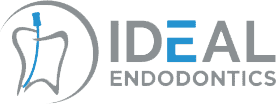Cracked Teeth Treatment Specialist in Washington, DC, and Woodbridge, VA
Looking to repair your cracked teeth? Look no further than Ideal Endodontics! Dr. Ali Manesh, DMD, and Dr. Moein Darjani, DDS, offer comprehensive treatments to repair your cracked teeth. The quicker you get your tooth fixed, the better the results will be. Most fractured teeth can operate normally for many years after treatment, allowing for pain-free biting and chewing. For more information, please contact us or book an appointment online. We have convenient locations to serve you in Washington, DC, and Woodbridge, VA.


Table of Contents:
How do I know if my tooth is cracked?
After treatment of a cracked tooth, will it completely heal?
How does endodontic treatment save the tooth?
What can I do to prevent a cracked tooth?
Cracked teeth show a variety of symptoms, including erratic pain when chewing, possibly with the release of biting pressure, or pain when your tooth is exposed to temperature extremes. In many cases, the pain may come and go, and your dentist may have difficulty locating which tooth is causing the discomfort.
Unlike a broken bone, the fracture in a cracked tooth will not heal. In spite of treatment, some cracks may continue to progress and separate, resulting in the loss of the tooth. The placement of a crown on a cracked tooth provides maximum protection but does not guarantee success in all cases.
The treatment you receive for your cracked tooth is important because it will relieve pain and reduce the likelihood that the crack will worsen. Once treated, most cracked teeth continue to function and provide years of comfortable chewing. Talk to your endodontist about your particular diagnosis and treatment recommendations. S/he will advise you on how to keep your natural teeth and achieve optimum dental health.
To understand endodontic treatment, it helps to know something about the anatomy of the tooth. Inside the tooth, under the white enamel and a hard layer called the dentin, is a soft tissue called the pulp. The pulp contains blood vessels, nerves, and connective tissue and creates the surrounding hard tissues of the tooth during development.
The pulp extends from the crown of the tooth to the tip of the roots where it connects to the tissues surrounding the root. The pulp is important during a tooth’s growth and development. However, once a tooth is fully mature it can survive without the pulp because the tooth continues to be nourished by the tissues surrounding it.
While cracked teeth are not completely preventable, you can take some steps to make your teeth less susceptible to cracks.
• Don’t chew on hard objects such as ice, unpopped popcorn kernels, or pens.
• Don’t clench or grind your teeth.
• If you clench or grind your teeth while you sleep, talk to your dentist about getting a retainer or other mouthguard to protect your teeth.
• Wear a mouthguard or protective mask when playing contact sports.







